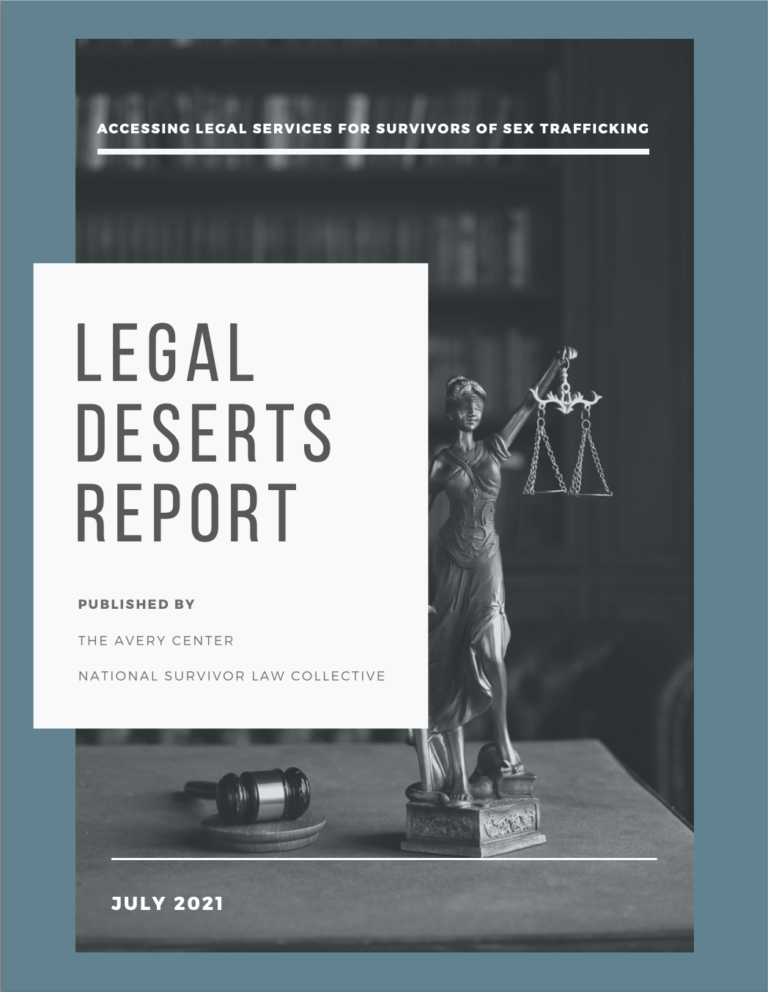Human trafficking victims who are exploited in the commercial sex industry try are highly likely to be arrested for offenses catalyzed by their victimization. The resulting criminal records shadow survivors out of trafficking and serve as barriers to achieving sustainable independence. Over the last ten years, many states have enacted some form of criminal record relief for trafficking survivors. However, it is incredibly difficult for survivors to claim their legal right to relief without legal representation. Securing legal services can be a time-consuming, trauma-inducing, and sometimes impossible endeavor. This report analyzes the accessibility of various forms of legal services for survivors of trafficking. The Avery Center’s research team contacted 550 organizations that self-advertised as providing legal services for survivors and clarified the type of legal support available (and for whom). The resulting data showcases the dramatic gap of providers able to assist survivors. Although the law has adjusted to better support survivors, the benefit of the law is inaccessible for most survivors. Without adequate legal representation, trafficking survivors are left living with the reality of human rights deprivation. The result is – a legal
desert.

